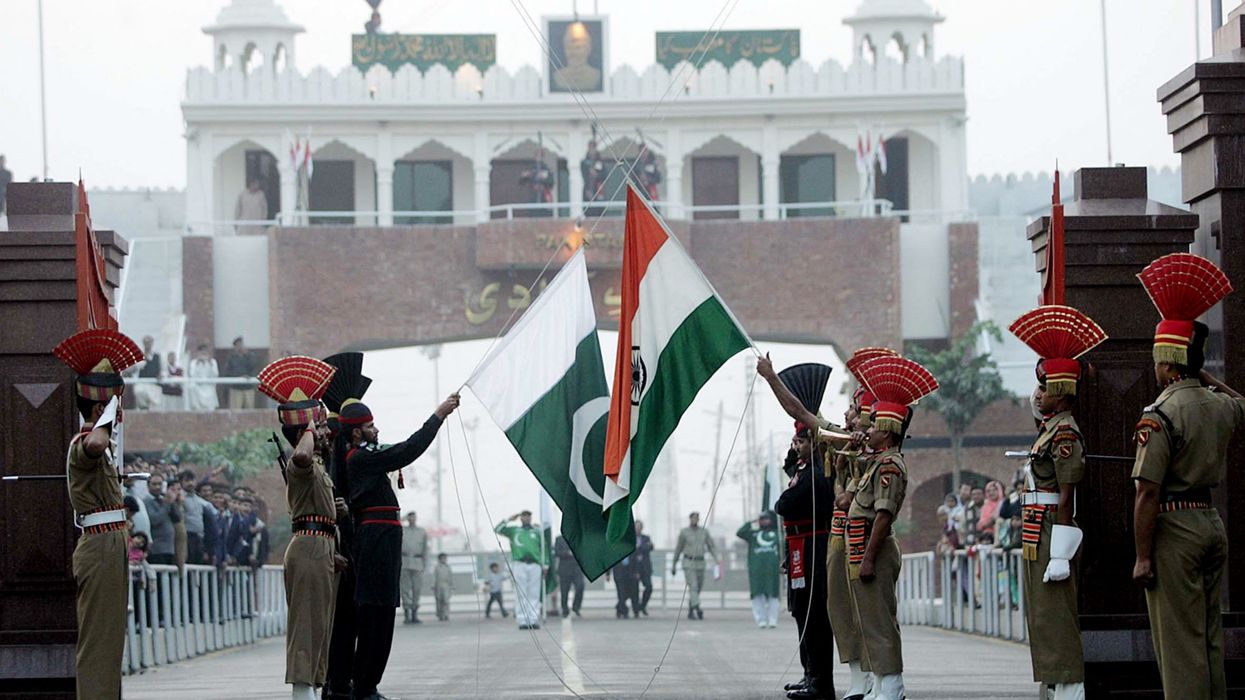A 34-year-old married Indian woman named Anju travelled to Pakistan's northwestern Khyber Pakhtunkhwa province to meet her 29-year-old Facebook friend, Nasrulla, whom she had befriended and for whom she developed romantic feelings, police said on Sunday (23).
Anju, who hails from Kailor village in Uttar Pradesh and resides in Alwar district of Rajasthan, is presently in the Upper Dir district of Pakistan's Khyber Pakhtunkhwa to meet her friend Nasrulla.
According to a report by ARY News, Nasrullah, who is employed in the medical field, and Anju became friends on the social media platform Facebook a few months ago.
Anju is currently visiting Pakistan for a month, and it has been clarified that she did not come with the intention of getting married to Nasrullah.
Initially, the Indian woman was in the custody of the police, but after verifying her travel documents, she was subsequently released by the district police.
"She was allowed to go after all the travel documents were found to be in order. They were provided security to ensure no untoward incident takes place and which can bring a bad name to the country," a source told PTI.
An officer at Dir police station said Anju and her friend were released after her documents were cleared by senior police officer Mushtaq Khab and Scouts Major.
A team of Rajasthan police reached the home of Anju in Bhiwadi to enquire about her after media reports. Her husband Arvind told police that she left the home on Thursday (20) on the pretext of going to Jaipur but later the family came to know that she was in Pakistan.
“Anju's husband said that she left home on Thursday. She had a valid passport,” Assistant Superintendent of Police Bhiwadi Sujit Shankar told PTI.
He said that the family has not given any complaint regarding the matter.
The couple work in private firms in Bhiwadi and has a 15-year-old girl and a six-year-old son.
Arvind told the media at his home that his wife Anju told her sister that she was in Lahore and later he spoke to her on a WhatsApp call.
He said he will talk to her and will ask her to return, asserting that he was hopeful that she would return home.
He said her passport was issued in 2020 as she wanted to apply for a job abroad.
Arvind said he had no idea that she was in touch with anyone on social media.
There are striking similarities between the stories of Anju and Seema Ghulam Haider, a Pakistani mother of four, who sneaked into India to live with Sachin Meena, a Hindu man she got in touch with while playing PUBG in 2019.
Seema, 30, and Sachin, 22, live in the Rabupura area of Greater Noida, near Delhi, where he runs a provision store, according to Uttar Pradesh Police.
While Seema was arrested on July 4 for illegally entering India without a visa via Nepal with her four children, all aged below seven years, Sachin was put behind bars for sheltering the illegal immigrants.
However, unlike Seema who entered India without a visa via Nepal with her four children all aged below seven years, Anju has travelled to Pakistan legally from India via the Wagah-Attari border.
(PTI)




